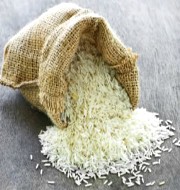China agrees to import rice from 17 mills in India
China has agreed to import rice, non-basmati and basmati varieties from 17 registered mills in India. These mills are in Punjab, Haryana, Uttar Pradesh and Madhya Pradesh.
It is considered as a major breakthrough in India’s efforts to ensure market access for Indian products (especially rice) in China as it is the world’s largest rice importer.
What is the issue?
- India had repeatedly sought market access for Indian products citing the country’s widening goods trade deficit with China.
- The products included non-basmati rice, pharmaceuticals and many fruits and vegetables among others.
- However, China had not granted market access to India’s non-basmati rice claiming that it failed to meet Chinese norms on quality, safety and health standards.
- China’s apprehensions included the possibility of the cabinet beetle (or Khapra beetle) pest getting transported along with Indian non-basmati rice consignments to China.
- In India, China’s objection to Indian non-basmati export was seen more political in nature than anything else as it imports non-basmati rice from its all weather friend Pakistan.
Note: India’s goods trade deficit with China has ballooned to $52.7 billion in 2015-16 from $1.1 billion in 2003-04.
Background
- After numerous requests from Indian side, Chinese officials had visited India in September to inspect 19 rice mills registered with National Plant Protection Organization (NPPO).
- NPPO had assisted its Chinese counterpart AQSIQ during inspection for plant quarantine purposes and pest-risk analysis to ensure that non-basmati consignments from India will be pest-free, of good quality and safe.
- The Agricultural and Processed Food Products Export Development Authority (APEDA) under the Indian Commerce Ministry was also involved in the process.
- Besides, India also had earlier sent the information sought by AQSIQ regarding the quality protocol and standard operating procedures.
NPPO is the nodal government agency for inspecting mills and granting certificates on plant health for export purposes. It is mandatory for Indian rice exporters to get registered with NPPO.
Month: Current Affairs - November, 2016



Jach Bonner
November 23, 2016 at 6:46 pmGood news
Jach Bonner
November 23, 2016 at 6:46 pmGood news